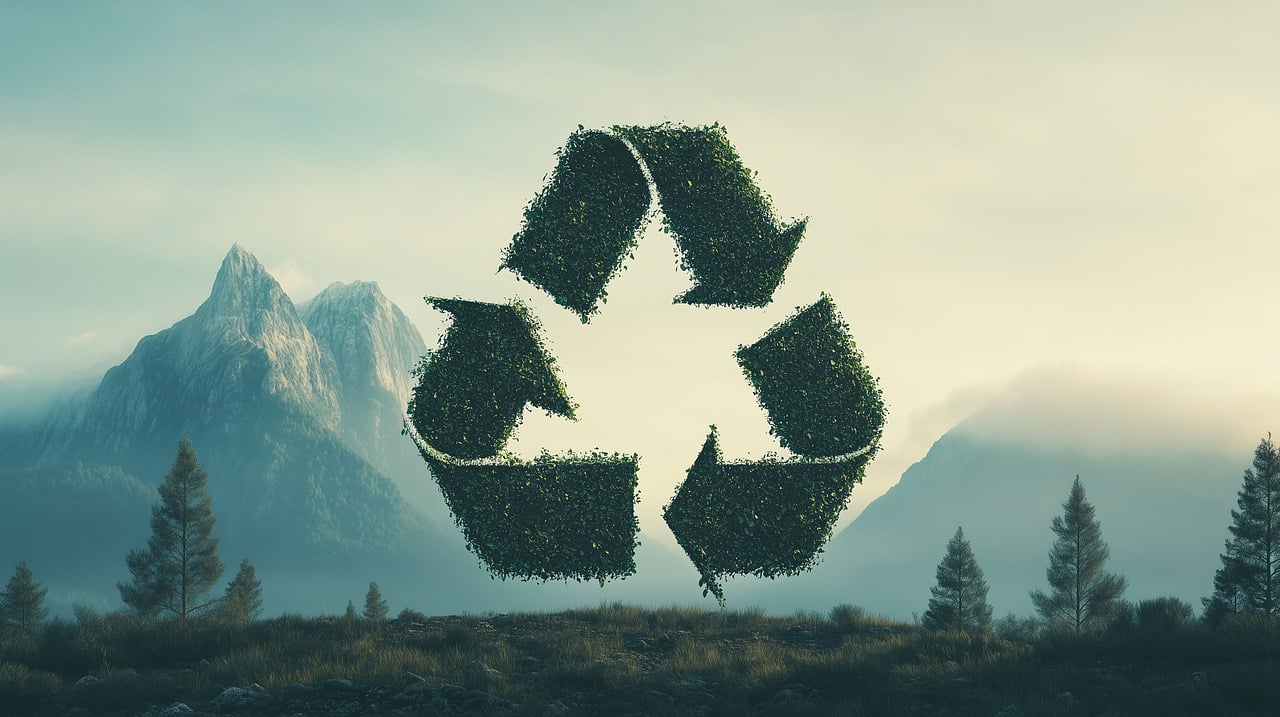Environment
2025: The Year to Prioritize Recycling and Sustainability for a Cleaner Planet

As we continue to step into 2025, the stakes for the environment couldn’t be higher. Climate change continues to accelerate, and waste production shows no signs of slowing down. Yet one of the most basic solutions—recycling—remains out of reach for millions of Americans. The problem is particularly dire for those living in multifamily homes like apartments, condos, and townhouses, where 63% lack adequate access to recycling services.
This gap is costing us all. Without effective recycling systems, materials that could be reused to save energy and resources are instead piling up in landfills, releasing harmful emissions and exacerbating the waste crisis. But it doesn’t have to be this way. With collective action from individuals, local governments, and industries, 2025 could be a turning point for sustainability and recycling.
What Can Households Do?
For individuals, the new year is an opportunity to commit to better recycling habits. But even the best intentions can be thwarted by confusion about what can and cannot be recycled. Items contaminated with food, mixed-material packaging, and non-recyclable plastics often end up in bins, creating challenges for material recovery facilities (MRFs).
Here are some steps households can take:
- Educate Yourself: Learn the recycling guidelines for your area. While rules differ by city and state, knowing what’s accepted locally can prevent contamination.
- Clean and Sort: Rinse containers and ensure items are free from food residue. Clean materials are more likely to be recycled.
- Advocate for Access: If you live in a multifamily home without recycling options, advocate for your building management to implement a system.
- Choose Recyclable Products: Support brands that use sustainable, recyclable packaging. Consumer demand drives industry change.
What Local Governments Need to Do
While individual action is vital, the systemic issues around recycling require government intervention. Many municipalities lack the infrastructure to handle modern waste streams, especially in urban areas where multifamily housing is common.
- Expand Recycling Access
Cities and states must prioritize making recycling accessible for all households, particularly multifamily homes. This includes requiring landlords and property management companies to provide recycling bins and services. - Standardize Guidelines
Inconsistent recycling rules create confusion and lead to contamination. By standardizing guidelines at the state or regional level, local governments can simplify the process for residents and improve recycling outcomes. - Invest in Infrastructure
Modern recycling facilities need advanced technology to sort and process materials efficiently. Local governments should allocate funds to upgrade MRFs with AI-powered sorting systems and robotics, which can handle the complexities of today’s packaging materials. - Enact Sustainability Laws
Policies like Extended Producer Responsibility (EPR) can shift the financial burden of waste management from taxpayers to the companies that produce packaging. “EPR legislation requires producers to take on the financial responsibility for managing the end-of-life disposal of their packaging,” explains JD Ambati, Founder & CEO of EverestLabs.
Countries like Germany and the Netherlands have already shown the potential of EPR policies. Germany saw a 40% increase in packaging recycling rates, while the Netherlands boosted plastic recycling by 36% within three years. These successes highlight what’s possible when producers are held accountable for the waste they create.
The Role of Industry
Manufacturers and brands have a significant role to play in creating a circular economy. By designing products with sustainability in mind, they can reduce the strain on recycling systems and make it easier for materials to be reused.
“Creating a circular economy does not just mean streamlining processes at the recycling facility level,” says Ambati. “Households also have an impact on the amount of waste that is being produced and discarded. That’s why cities and states need to make recycling more accessible for all households and expand recycling resources, so that no recyclable gets left behind.”
The use of mono-material packaging, refillable containers, and biodegradable options are all steps in the right direction. Brands that take these measures not only reduce their environmental footprint but also build consumer trust, as more people prioritize sustainability in their purchasing decisions.
The Bigger Picture
Recycling isn’t just about reducing waste—it’s about conserving energy, protecting natural resources, and reducing greenhouse gas emissions. For example, recycling aluminum saves 95% of the energy required to produce it from raw materials. Recycling one ton of paper saves enough energy to power the average American home for six months, along with 7,000 gallons of water and 3.3 cubic yards of landfill space.
The circular economy relies on participation from all stakeholders: consumers, governments, and industries. By working together, we can make significant progress toward reducing waste and building a sustainable future.
A Cleaner Year on Record
The start of a new year is a chance to reset priorities and take meaningful action. For individuals, it’s about being mindful of what we consume and how we dispose of it. For local governments, it’s about expanding access and enforcing policies that hold all players accountable. And for industries, it’s about designing products that fit into a circular system.
As Ambati reminds us, “The circular economy requires all stakeholders to be involved—not just consumers and recycling facilities.”
In 2025, let’s commit to making recycling and sustainability top priorities. Together, we can work toward a cleaner year on record and ensure a healthier planet for future generations. The time to act is now—the planet is counting on it.
-

 Home and Garden6 days ago
Home and Garden6 days agoTransform Your Space: A Guide to Minimalist House Interior Design in 2025
-

 Home & Family6 days ago
Home & Family6 days ago10 Essential Cleaning Hacks for Bathroom Surfaces You Need to Try
-

 Health & Fitness6 days ago
Health & Fitness6 days agoDiscovering the Best Multivitamin for Women Over 40: Essential Nutrients for Optimal Health
-

 Health & Fitness6 days ago
Health & Fitness6 days agoDiscover the Best Multivitamin for Women Over 40: A Comprehensive Guide to Optimal Health
-

 Automotive5 days ago
Automotive5 days agoUnlocking Performance: Why the HP Spectre x360 is the Ultimate 2-in-1 Laptop for 2025
-

 Crime6 days ago
Crime6 days agoExploring the Most Anticipated New True Crime Documentaries of 2025
-

 Business6 days ago
Business6 days agoMaximize Your Earnings with American Express High Yield Savings Accounts in 2025
-

 Gadgets & Electronics5 days ago
Gadgets & Electronics5 days agoTop 5 Unlocked Android Phones Under $100 for Budget Shoppers in 2025




















